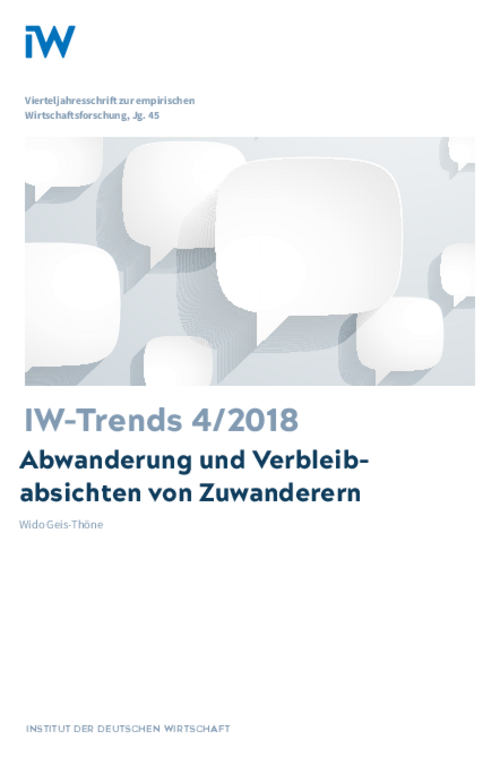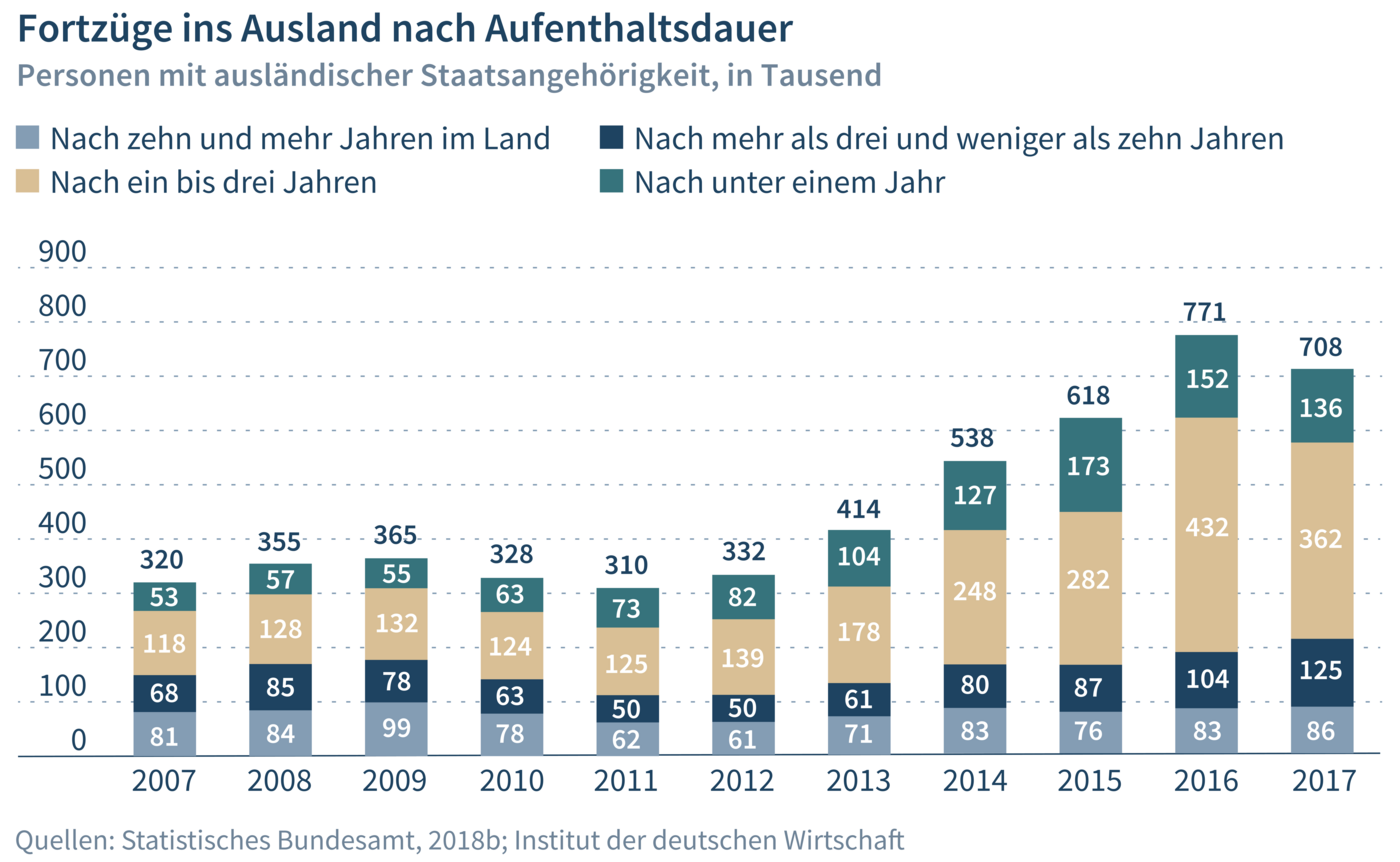Although Germany has experienced a very high level of net immigration in recent years, the number of foreigners leaving the country has also increased significantly. Of the 708,000 who left Germany in 2017, 30 per cent had been in the country for more than three years and were therefore not typical examples of temporary forms of migration, such as studying abroad or international project work.

Immigrants’ Intentions: Moving on or Staying
IW Trends

Although Germany has experienced a very high level of net immigration in recent years, the number of foreigners leaving the country has also increased significantly. Of the 708,000 who left Germany in 2017, 30 per cent had been in the country for more than three years and were therefore not typical examples of temporary forms of migration, such as studying abroad or international project work.
Some 8.6 per cent of foreigners who had been living in Germany for between four and ten years left the country again in 2017. Given the effects of the demographic transition, were Germany to see significantly fewer immigrants in the future, this rate of return or onward migration could become a problem. Of the factors which influence migrants’ intentions, their family situation clearly plays an important role. Even without any stronger attachment to their new homeland, parents with at least two children in their household are much less likely to want to leave. In addition, multivariate analyses of the determinants of emigration intentions and ties to Germany indicate that the highly qualified are more likely to leave the country than other immigrants.


Wido Geis-Thöne: Abwanderung und Verbleibabsichten von Zuwanderern
IW Trends

More on the topic

The 9th IW Survey of Further Training
In 2016 some 85 per cent of companies in Germany were active in continuing vocational training, using a broad mix of methods.
IW
Has the German Economy Reached its Limit?: Skilled Labour Shortages as a Brake on Growth
The German economy is performing significantly better than was expected in the first few months of this year. During the course of 2017, certain early fears – especially of a weakening of the global economy due to increasing protectionism – have proved ...
IW